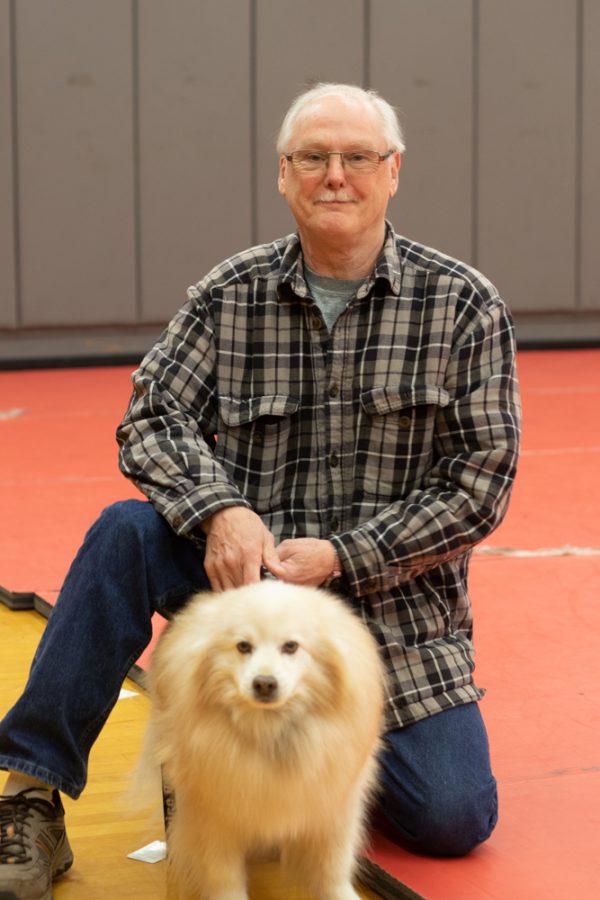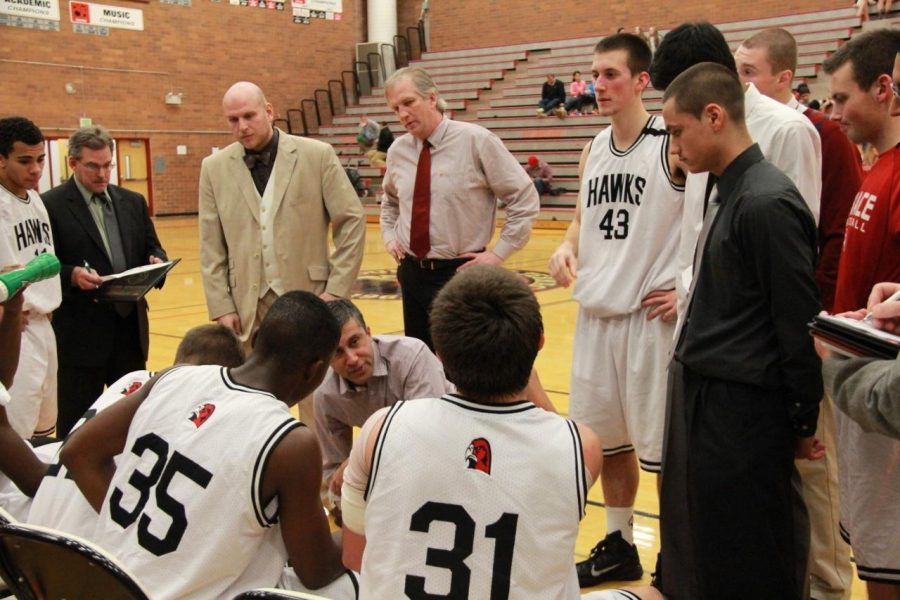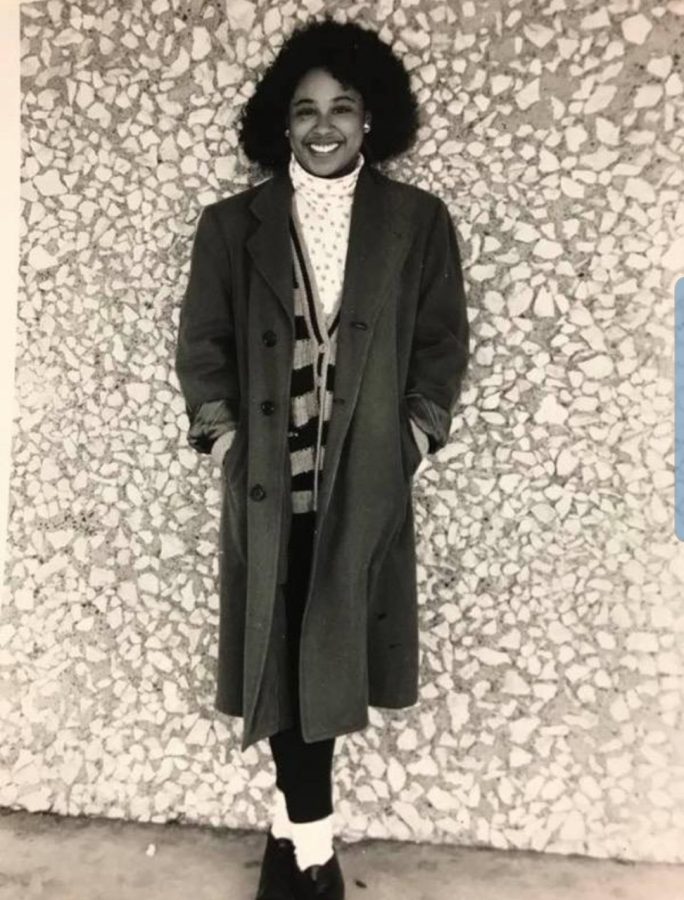After serving on the Edmonds School District (ESD) board of directors for 16 years, director Anne McMurray announced that she would not seek reelection to her District two seat. To take her place, ESD voters chose between Melisa Stepp and Keith Smith during the November election.
Although Stepp was endorsed by the Edmonds Education Association, election results indicate that Smith has won the election and is set to begin his term on Dec. 31. He will represent the southeastern part of the district, including Brier and Mountlake Terrace.
Growing up, Smith saw his mom’s incredible work ethic as she tried to provide for the family. His father didn’t bring in income to the household, and much of Smith’s life consisted of moving around to different family members’ homes.
“This really gave me a new perspective into how families can be,” he said.
By the time he reached MTHS, Smith had also developed a strong work ethic of his own. Throughout his high school years, he maintained a full-time 40-hour job while taking challenging advanced placement and honors classes.
“Working was almost a survival strategy for me,” he said.
He simultaneously had a passion for learning and wanted to become an adult quickly. Having experienced the lack of money in his home from a young age, he wanted to be able to take care of himself, and he worked to be able to do this all through high school.
“I definitely was ready to become an adult a lot sooner than I should have,” he said. “I should have enjoyed high school way more than I did.”
Between working a full-time job and managing his classes, Smith also made time for sports, hanging out with his friends and watching “Law in Order.” In fact, it was this love of “Law in Order” that made him think for a while that he wanted to become a lawyer.
“I loved the lawyer piece of that show, and then I actually met lawyers, so that probably led to my fascination with that field,” he said.
It was more than just the show and the people he met, though. Even in high school, if anyone had questions on any kind of rule, Smith was right there to answer.
“I probably had something seriously wrong with me in the fact that if someone asked me a question about what the rules were to something, I’d pull up the case law,” he said. “I’d be like, hmm, let’s see what State v. Smith says, and then I’d summarize it for them. I just loved reading that stuff, even in high school.”
However, it would take several years before Smith could truly utilize this love of reading and breaking down cases. After graduating from MTHS in 2004, he began an adventure to find the perfect college fit.
After trying out a couple of colleges and finding that they weren’t quite what he was looking for, Smith eventually found himself at Shoreline Community College, where he met his philosophy professor, Richard Curtis. Thanks to this professor, Smith’s confidence grew, and his interest in philosophy peaked.
“He [Professor Curtis] is truly the reason I kept going,” Smith said. “Every day that I was there for the two years I was there, I would go into his office during lunch and he would debate with me about whatever it is we were reading or something philosophical that got my mind going in a way that I had never experienced before.”
While Smith and his professor didn’t always agree, their discussions helped him maintain interest, and he appreciated the way that his mind was stimulated to think deeper and bigger.
“Even when we didn’t agree on things, Professor Curtis would say, ‘I disagree with you, but I think your views are great,’ and that kept me going,” Smith said.
However, that changed when he graduated from Shoreline in 2008 and transferred to the University of Washington. Having loved philosophy previously, he decided to continue to take the class.
“I’m not saying this will be the same experience for everyone, but in my case, the class size was huge and the class was being taught by a grad student,” he said. “I just remember going into that class and being laughed at because of what I believed.”
After a quarter at the University of Washington, Smith decided that it wasn’t a good fit for him, and he spent the next five years dabbling in various jobs.
Initially, he was thinking about becoming a paralegal or potentially going to law school. Then, he got to hear from a private investigator, and he was hooked. After hearing from this investigator, Smith decided to volunteer as a court-appointed special advocate, formerly known as a guardian ad litem.
“When kids get pulled from their parents for dependency proceedings, the court appoints someone to advocate for the child’s best interests,” he said. “It’s a volunteer position right now, but there has been debate in the state legislature as to whether or not they want to make lawyers do that or if volunteers are fine.”
While advocating for the kids, Smith had an opportunity to do all the things he loved the most. He examined criminal history, medical history, court records and so much more.
“It is still, to this day, probably the most rewarding thing I’ve ever done,” he said. “It feels so good at the end of it when you can reunite a family, or if you can’t reunite a family, getting that kid into a home where they can be taken care of is pretty special.”
Throughout his work as an advocate for kids, Smith came to realize that the system needed serious changes to make sure that each child got the advocacy they truly deserved. While his main goal was always to reunite them with their families when possible, his job was also to ensure their safety.
One of the cases that stood out most to him was a case involving a 4-year-old girl. According to social workers, the girl was to have unsupervised visits with her father. Before that could happen, Smith needed to look through the father’s records to ensure that the child was not being put into an unsafe situation.
As he did his background check on the father, he noticed an unexplained criminal charge from years back from a tribe on the peninsula. Concerned, he called the police department to obtain the records, and was told he would need to drive to pick them up.
Although it was a four-hour drive, he chose to get the records as soon as he could. The day before the girl was supposed to have the visit with her father, Smith uncovered that the father had been charged with molesting a child of the same age as his daughter 10 years prior.
“I ran to the social worker’s office, she read through the papers and we stopped the visits from happening,” he said. “The difference between that man having visited with his daughter and not, though, was the fact that I was willing to drive four hours as a volunteer, and that’s when I realized what we do matters and the system is moving the way it moves, but we need disruptors to make sure these kids have the advocates they need.”
Smith’s time as a court-appointed advocate made him even more passionate about advocating for the kids that need it the most. In 2013, he went back to college, and in 2015, he graduated with a degree in law and justice. Then, in 2020, he was met with a surprise.
Thanks to the extreme teacher shortages caused by the pandemic, the Granite Falls School District asked Smith to become a substitute teacher. Although he doesn’t hold a teaching degree, he has always loved kids and training people, so he decided to give it a try.
After subbing for a little over half a year in 2020, the district still needed teachers, and he was offered a full-time position for the 2021-2022 school year as a second grade teacher at Mountain Way Elementary. Again, he agreed.
“For as many tough days as there are, I love these kids, and I love that I get to be there for them,” he said.
In addition to teaching, Smith is also a huge sports fan and regularly officiates student sports games. It is this connection to the community and experience in teaching that Smith hopes to bring to the ESD School Board.
“I want to focus on making sure kids are in all the activities that they want to be in, and that we’re offering that to them. I also have that experience of being a teacher now, and that’s a unique perspective that I bring,” he said. “I want teachers to know that I am going to do my best to focus on making sure that we’re treating them right. They can always come to me, and I will always listen.”





